Rambam Hilchos Teshuvah Chapter 2
Rambam Mishneh Torah
- August 27, 2020
- |
- 7 Elul 5780
Rabbi YY Jacobson
874 views- 5Comment
- Call-in
Listen to the class on the phone
Call +1 (845) 201-1933
When prompted, dial the ID number below.
7707 MP3 MP4 Source Sheets - Copy Embed
Dedicated by Baruch Yosef Markoff, in honor of Aharon ben Sarah and Fraydel bas Sarah. May Hashem bless them with a complete Refuah Shelaimah and many more good, long, healthy, active and lucid years filled with simcha, nachas and continued growth in Torah and mitzvahs
Class Summary:
This class in Rambam the laws of Teshuvah, chapter two, was presented on Thursday, Parshas Ki Seitzei, 7 Elul, 5780, August 27, 2020, from Rabbi Jacobson's home in Monsey, NY
Categories
Rambam Mishneh Torah
Rabbi YY Jacobson
- August 27, 2020
- |
- 7 Elul 5780
- |
- 874 views
Dedicated by Baruch Yosef Markoff, in honor of Aharon ben Sarah and Fraydel bas Sarah. May Hashem bless them with a complete Refuah Shelaimah and many more good, long, healthy, active and lucid years filled with simcha, nachas and continued growth in Torah and mitzvahs
Related Classes
Please help us continue our work
Sign up to receive latest content by Rabbi YY
Join our WhatsApp Community
Join our WhatsApp Community


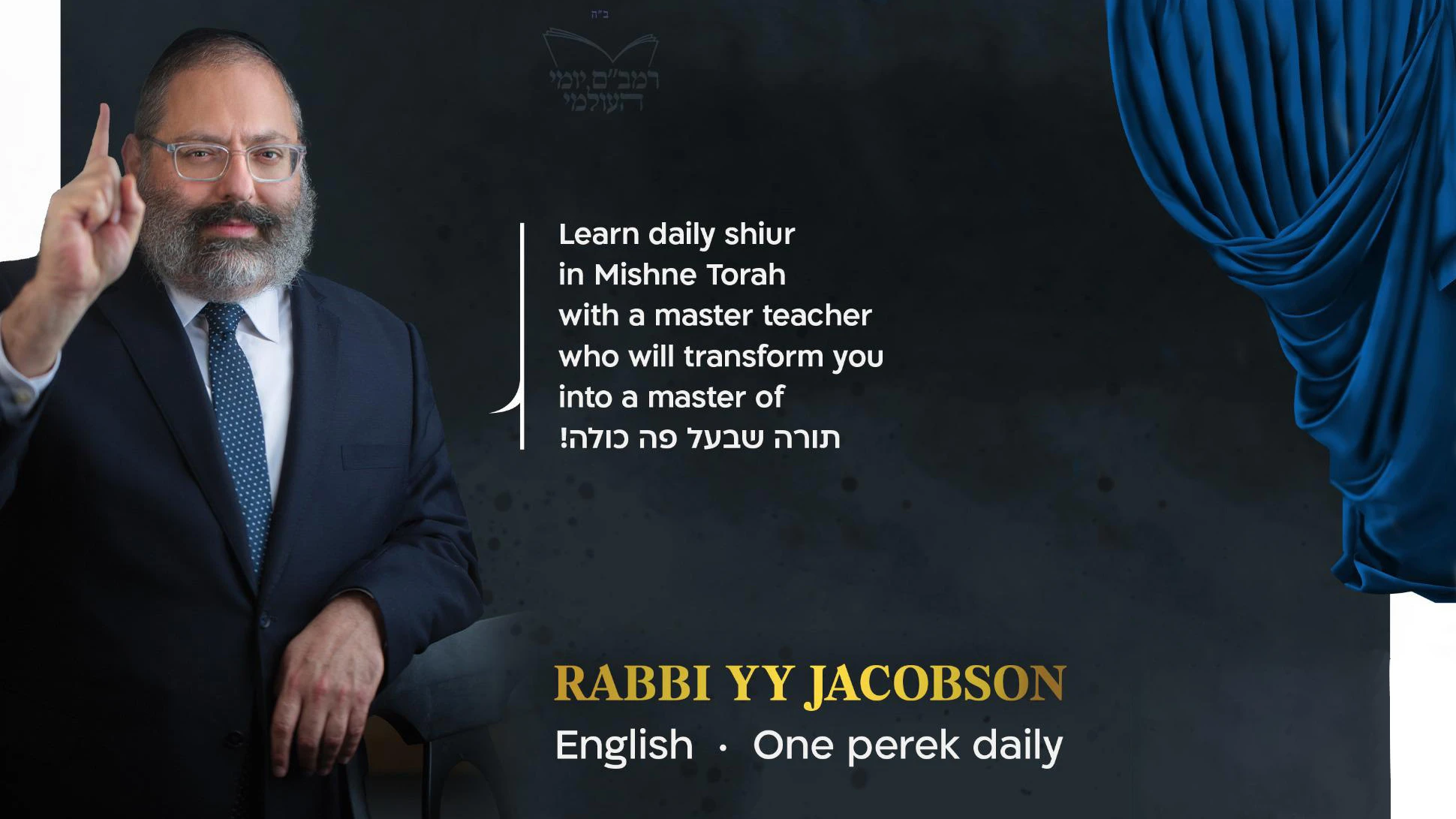
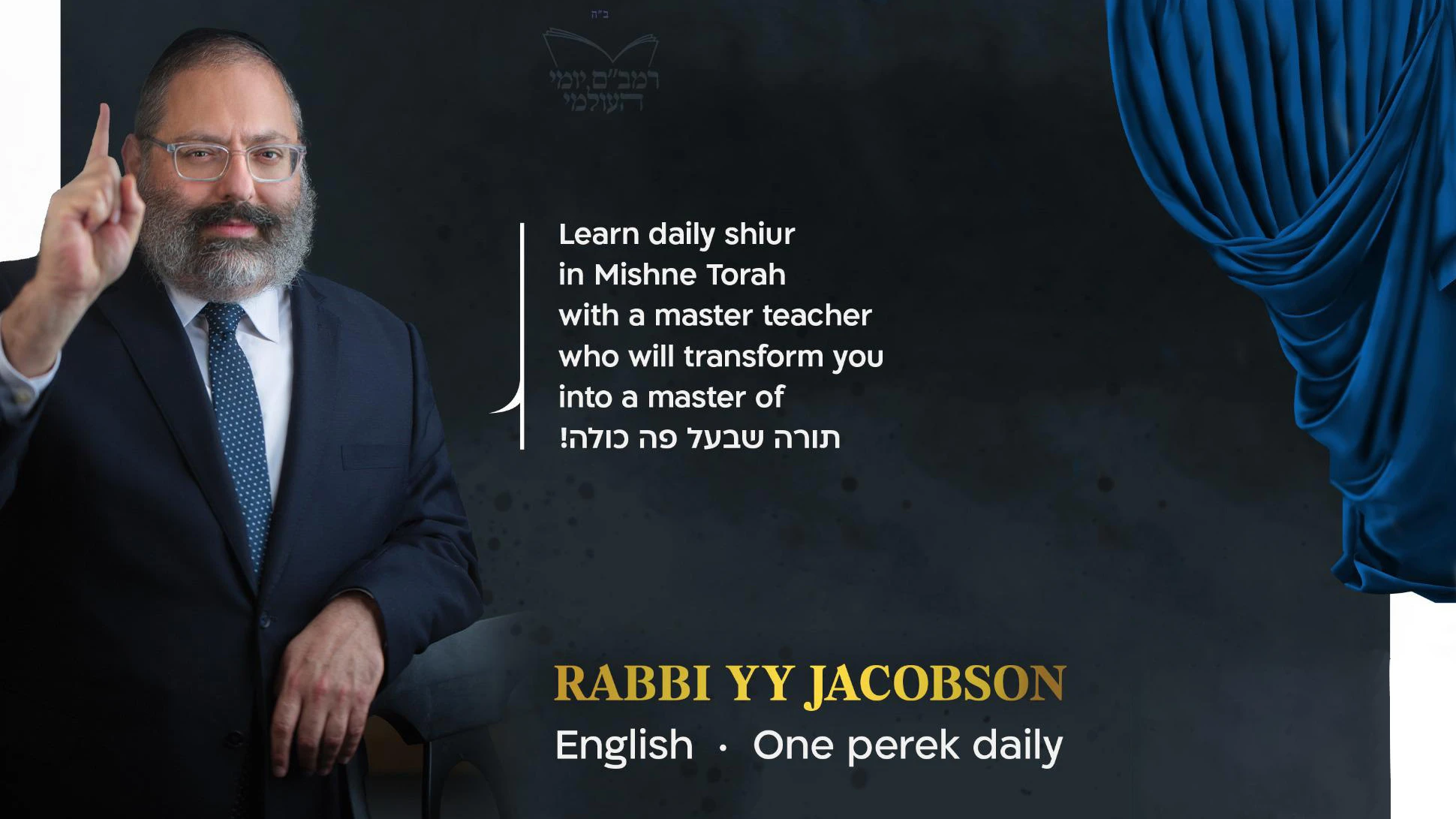
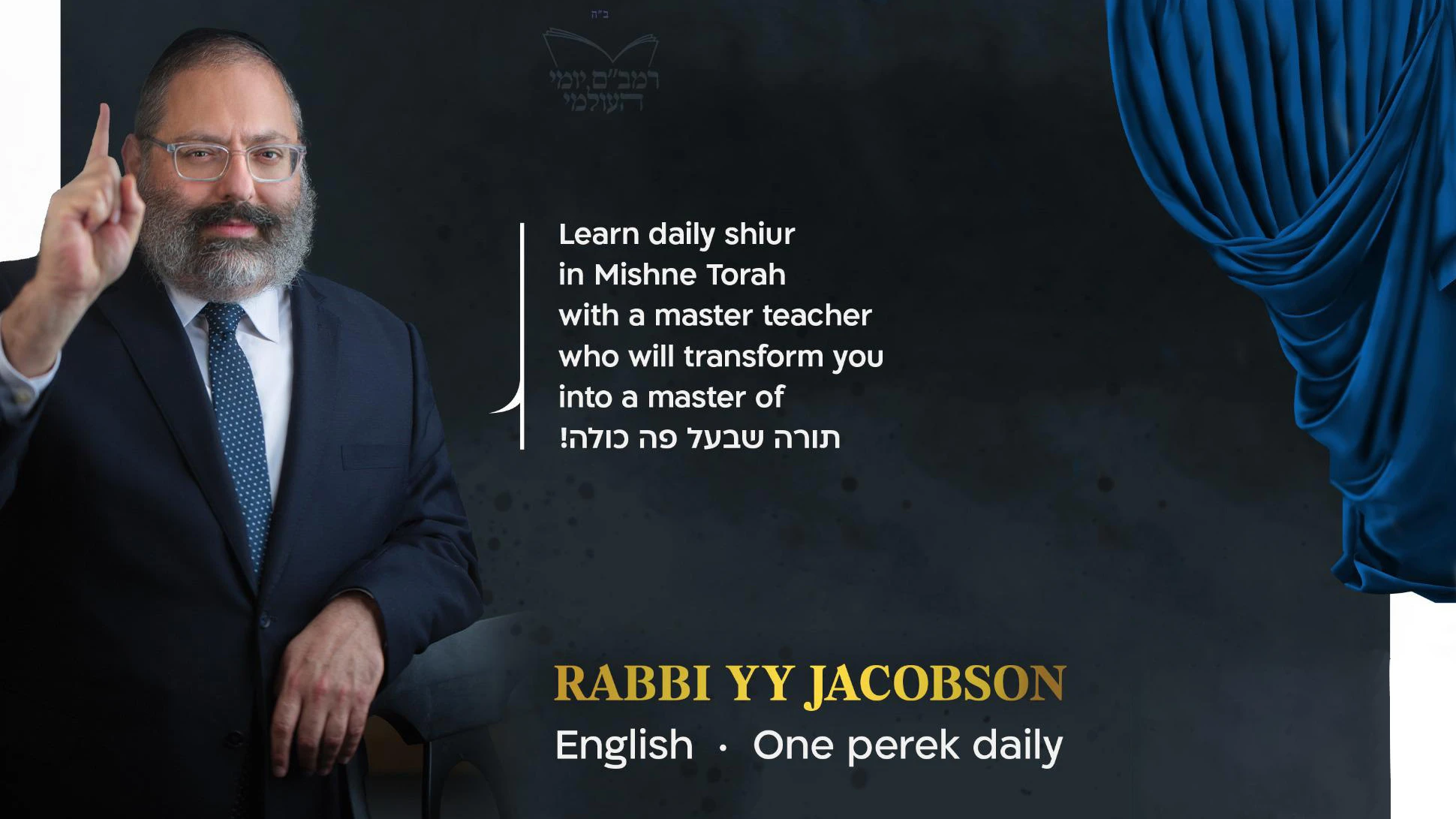

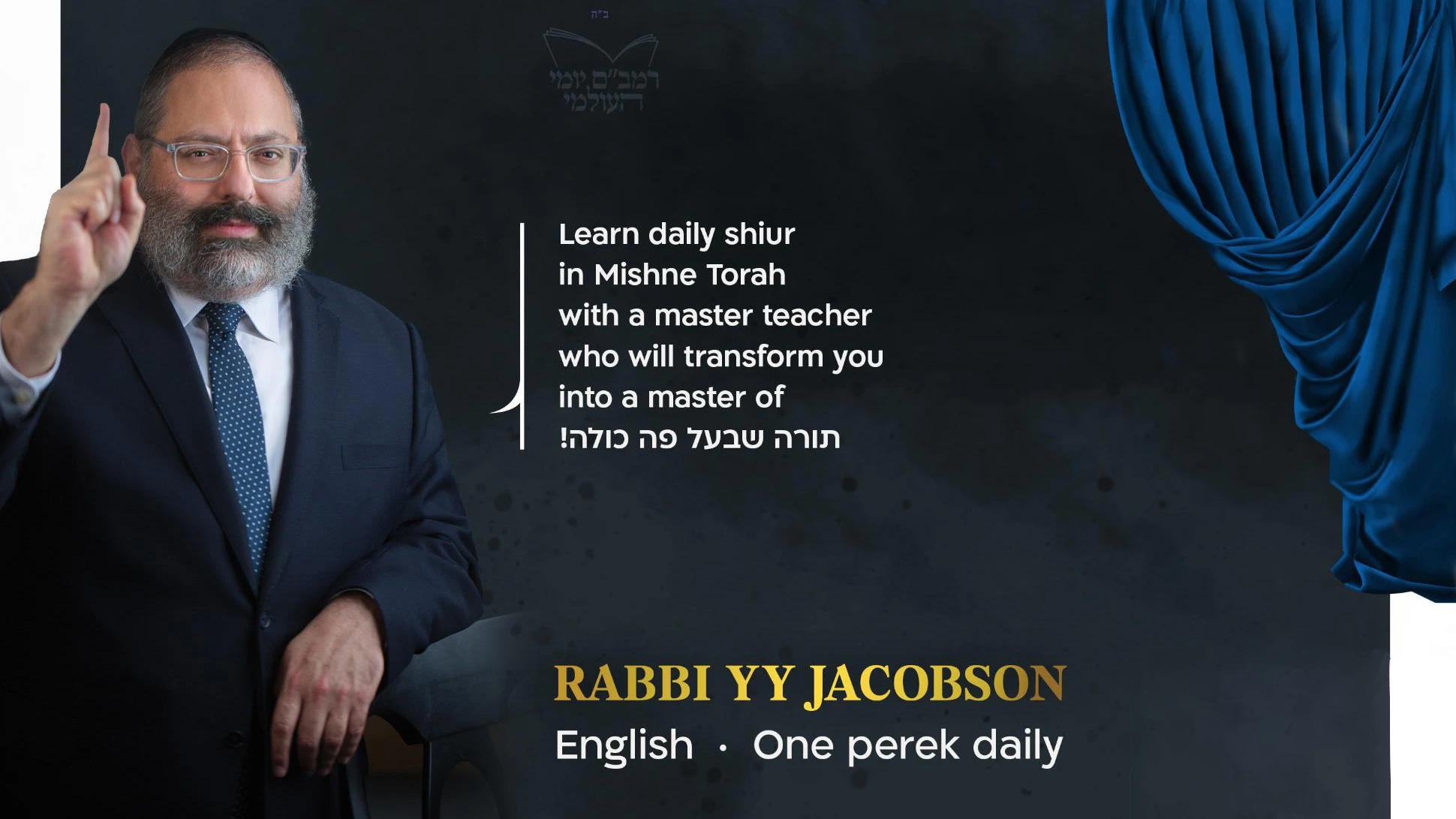
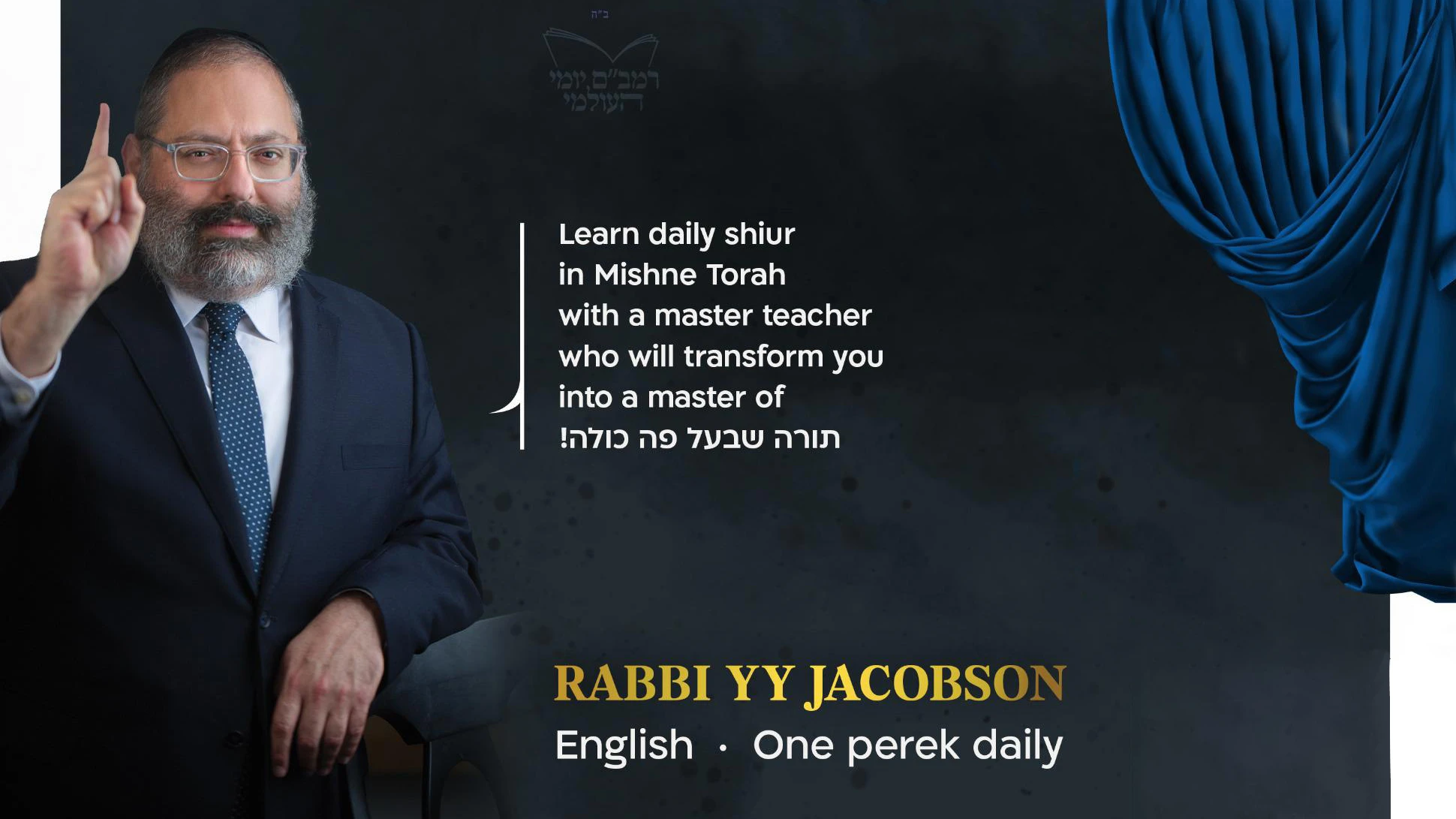
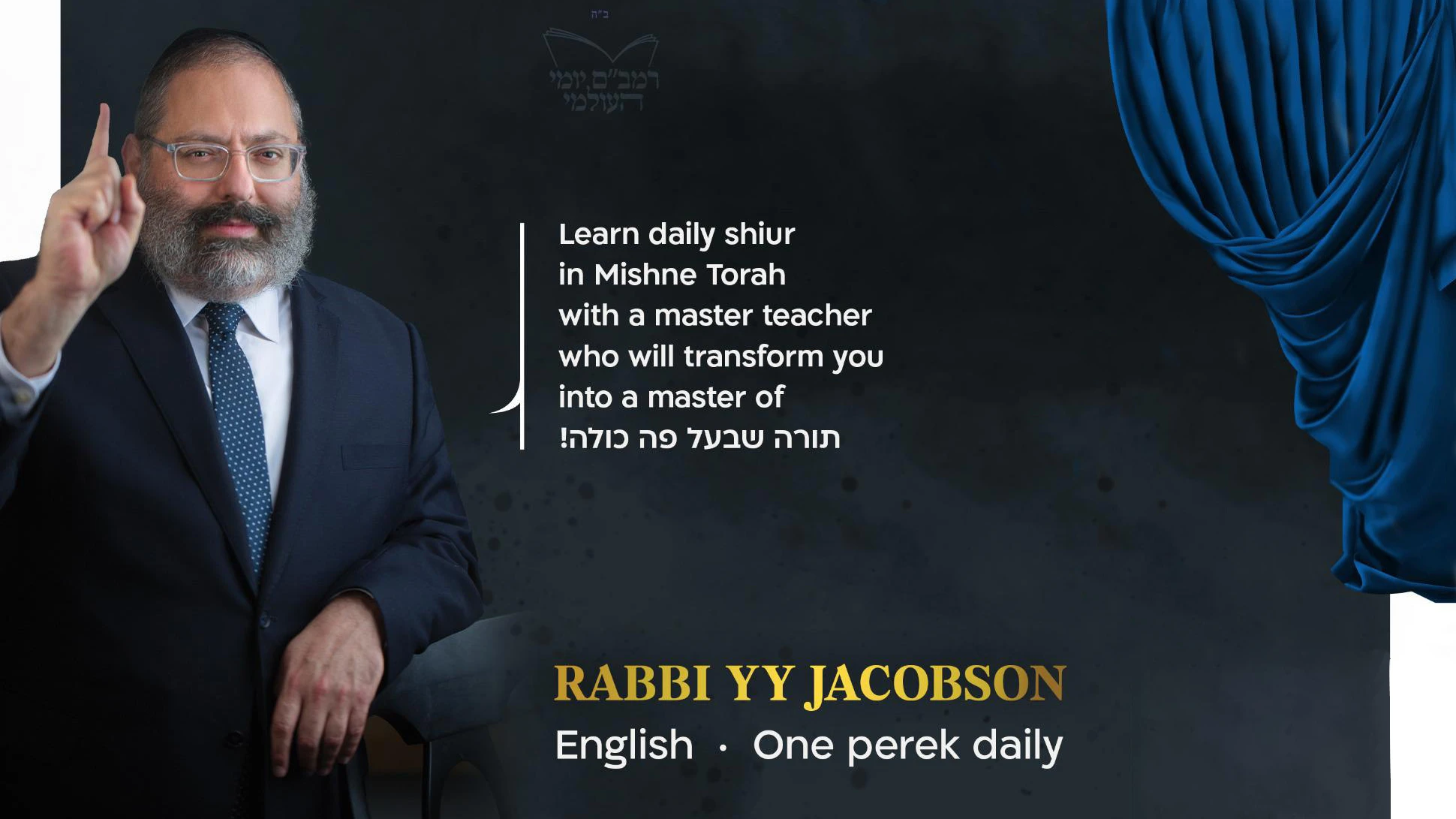
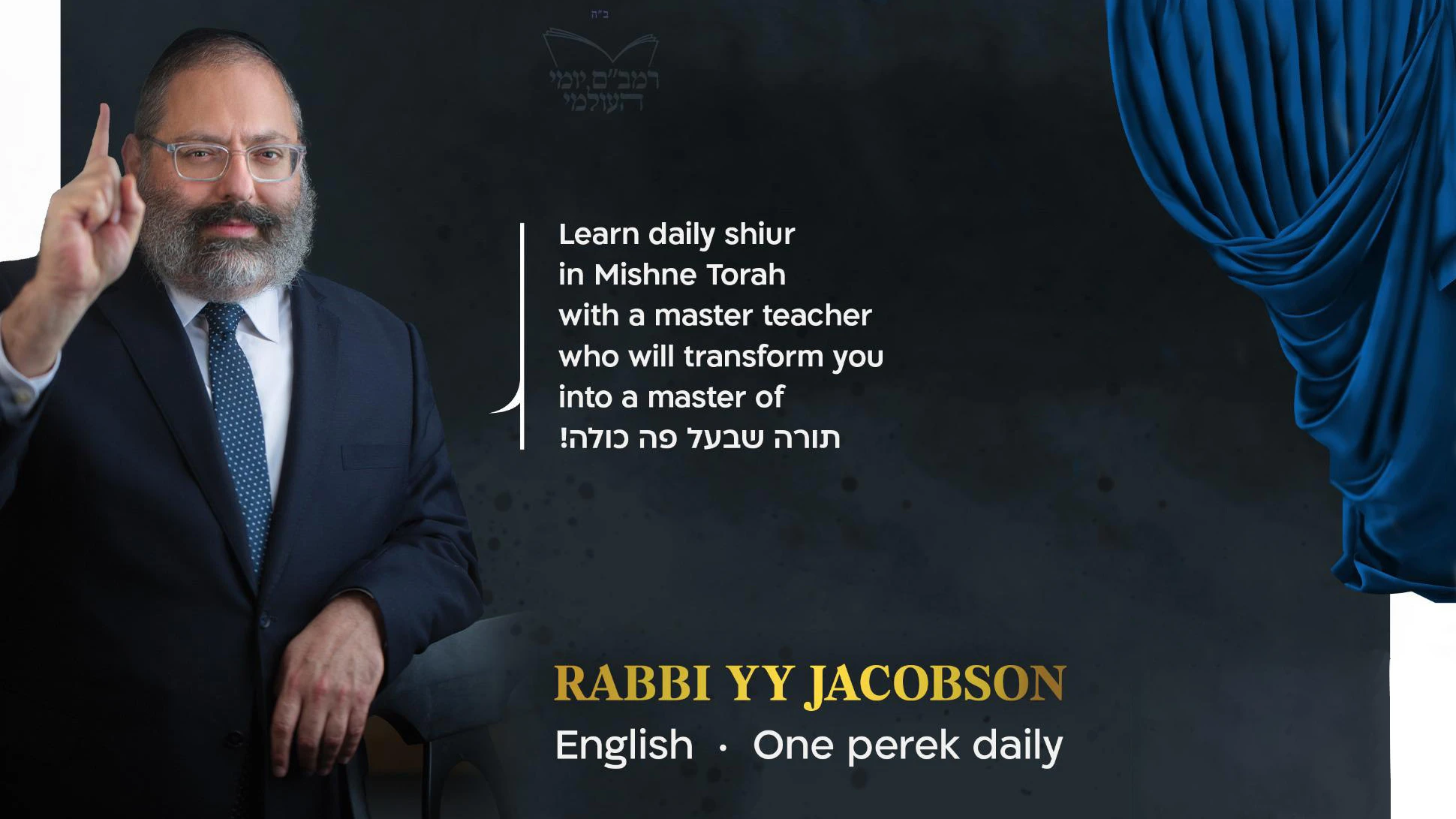
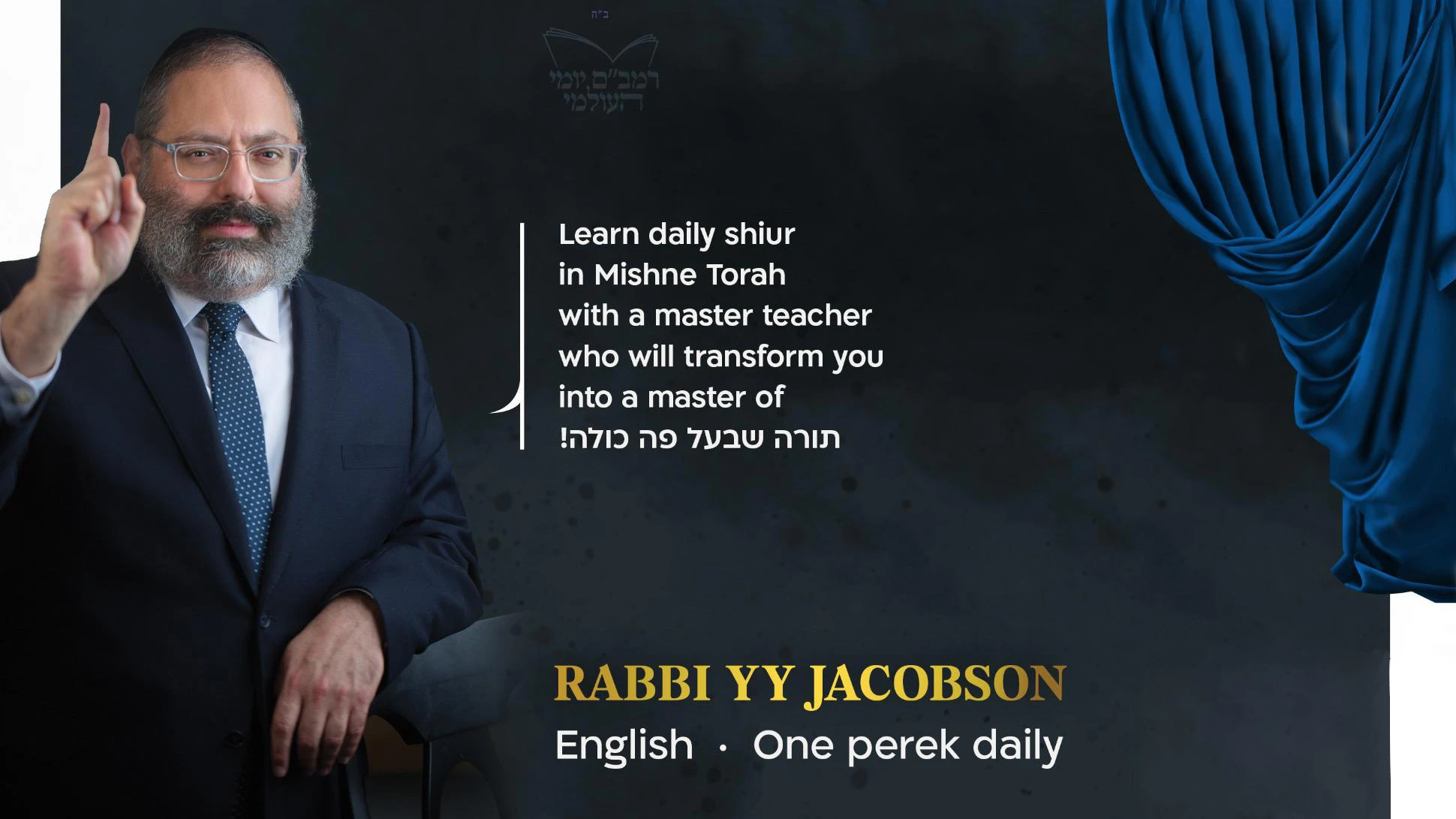
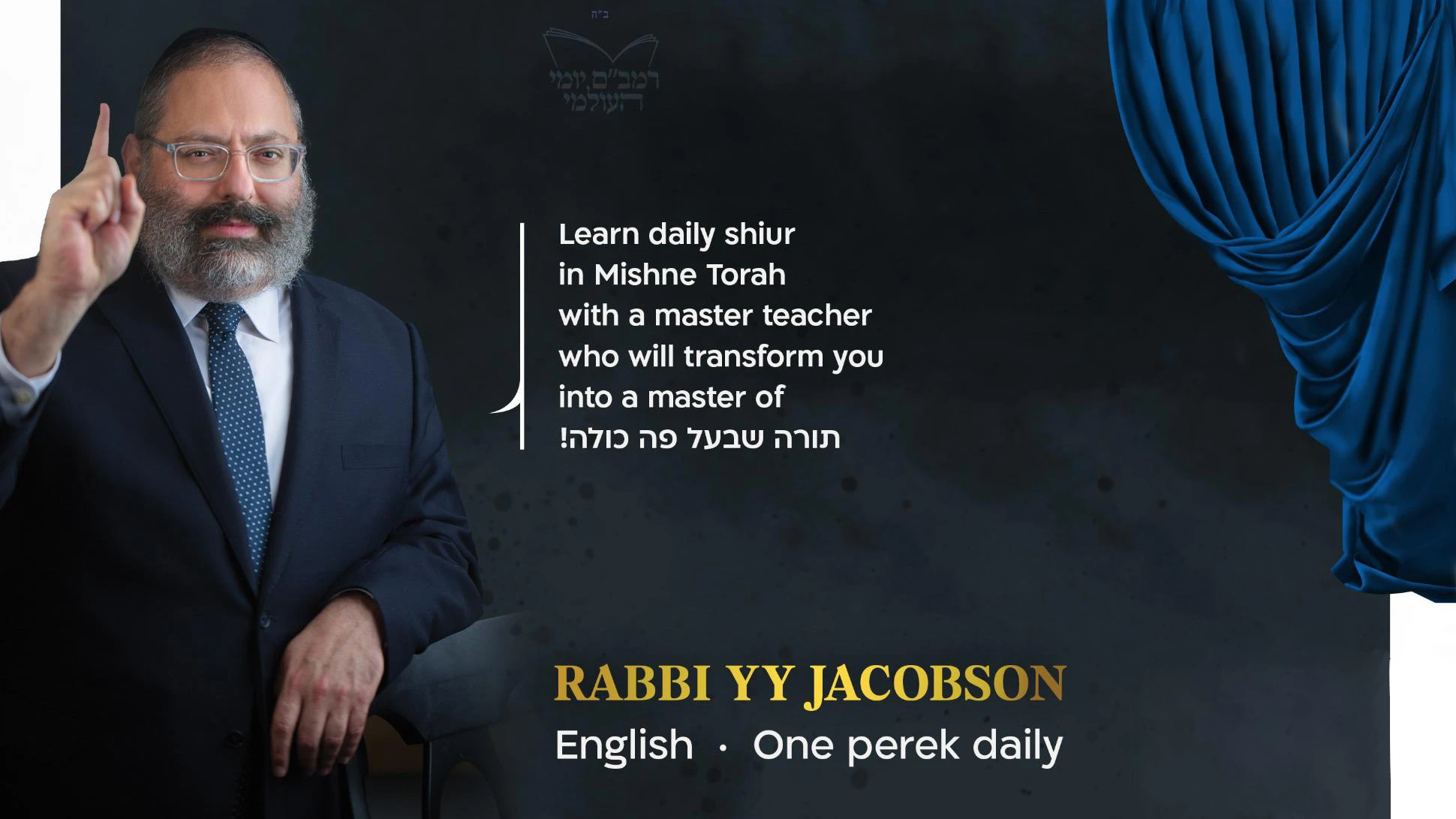
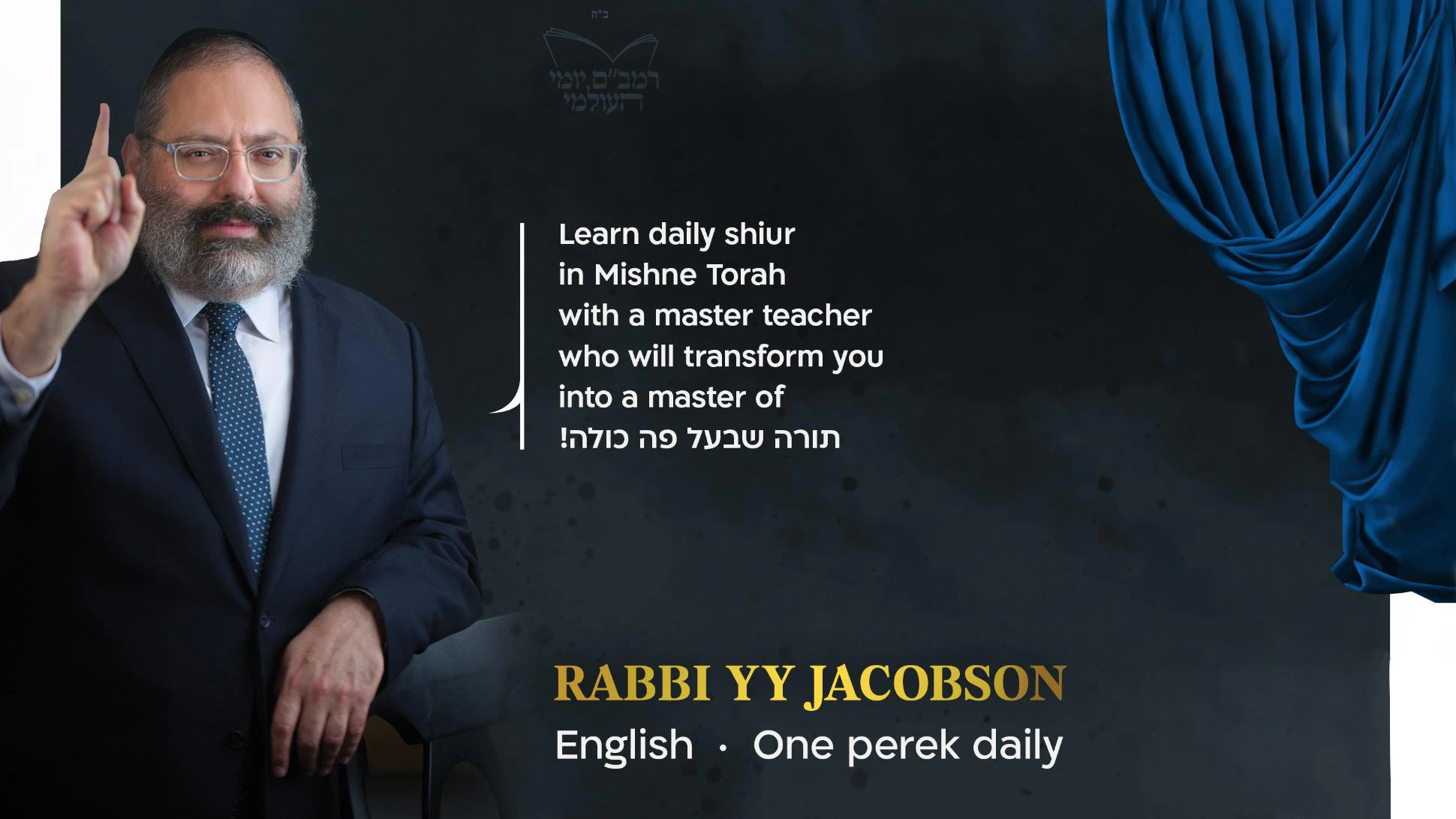
Please leave your comment below!
Dr. Heshie Klein -4 years ago
Re: An Answer to Your Questions - Why Didn’t the Rambam start with Halacha 2 and 3?
Successful people, when they set out to accomplish something, they first envision their GOAL. Then they set steps and intermediate goals to reach the main GOAL. But they always keep their eyes on the GOAL. They look at the Bigger Picture.
If the Rambam were to explain the steps to teshuvah before telling us what the ultimate goal is, Teshuvah Gemurah, people might think, “OK, I’ll do little and I won’t have to go further. So at least I did something, and maybe one day, I’ll do a little more teshuvah.
The new coach of football team that had lost every game they played, took the entire team on a victory ride down a major boulevard, with champagne and ticker tape, and they celebrated their victory in the present for the future, so that they would have what to aim for, so they would have the feeling of success, of winning, inside themselves. And in doing so, he instilled his belief in them and their own belief in themselves that they could win. And win, they did – big time! From then on, they won every game they played and even won the Superbowl. They won because they kept their eyes on the goal. The goal was palpable.
Gertrude Erdele won the Gold Medal for swimming in the 1924 Olympics. She was 18 years old. In 1925, she attempted to swim across the English Channel. The distance is 35 miles. That day, the waves were choppy, the winds were strong, and there was a dense fog. After swimming 34 miles (the had no way of measuring the exact number of miles in those days) after an arduous attempt, she couldn’t see 20 feet ahead of her. She was exhausted and gave up hope and they took her back into the safety boat that was following her. She didn’t realize that she was only a half mile from shore, a half mile from her goal. She gave up because she couldn’t see the shore. She lost sight of her goal.
The next year she was better prepared, and she swam across the Channel again, but this time she kept her eyes and her heart on the GOAL, on the shore, and she beat the men’s record by 2 hours.
I believe that is why the Rambam started out with Teshuva Gemurah. To show us the ultimate GOAL, so that we would always keep our eyes on that GOAL, no matter how many times we stumble along the path.
If you shoot for the moon and you miss, at least you will reach the stars.
Reply to this comment.Flag this comment.
ALizah Hochstead -4 years ago
Perek one
Had to comes first as it sets the scene (stage for Peerek 2 and 3. It appears to me like the Rambam is a great scenewriter or composer here
Reply to this comment.Flag this comment.
Dr. Heshie Klein -4 years ago
Re Not Eating Nuts on Rosh Hashana
B’aniyas da’ati , I never understood the concept of equating “egoz”, aleph-gimel-vav-zayin (1 + 3 + 6 + 7 = 17) with “chet”, ches-tes-aleph (8 + 9 + 1 = 18). The gematrias not match.
I have heard people say that you can fudge a little by adding 1 for the word itself.
In my engineering days, I learned that 17 does not equal 18, no matter how you fudge it.
Im kein, ayn l’davar sof!
Reply to this comment.Flag this comment.
Pinchus Krieger -4 years ago
"Chet" here is 17 =חט
Reply to this comment.Flag this comment.
Dr. Heshie Klein -4 years ago
We Are All One
After the chet ha’eigel, the sin of the golden calf, “Moshe says to the people, ‘You have committed a grievous sin! And now I shall ascend to Hashem – perhaps I can attain atonement for your sin.’ ”
“And Moshe returned to Hashem and said, ‘I implore [You], this people has committed a grievous sin and made for themselves a god of gold. And now if you would but forgive their sin . . .’ “ (Exodus 32:30-31)
Since Moshe Rabbeinu did vidui to Hashem on behalf of Klal Yisroel by the chet ha’eigel without asking Klal Yisroel to appoint him as a sheliach for them, and the Torah doesn’t say they had remorse, nor does it say that they accepted Moshe’s statement (offer) that he will ask Hashem for their forgiveness, then it would seem that several things can be learned from this:
1 – Silence is acquiescence.
2 – Zachin l’Adam shelo b’fonov , (i.e. - One can do something good for a person even if the person is not aware of the do-gooder’s actions, and even if the sinner does not verbalize agreement with the do-gooder’s intent or his or her actions on their behalf), that the same applies to teshuva.
2 – One can be misvadeh (ask for repentance) for another, even though the sinner did not choose to repent, and even if the sinner did not realize that he sinned.
3 – One can do teshuva for sinner as a sheliach, even if the sinner did not appoint the do-gooder as his or her sheliach.
4 – One can ask for forgiveness for a sinner, even if the sinner is still involved in his or her sinning.
5- One can be forced to do teshuva.
6 – We see this from the pasuk in parshas Tazria, by a metzorah, “V’huvah el haKohein – and he shall be brought to the Kohein . . .” (Vayikra 13:3)
The Torah should have said, “v’yavo el haKoehin – and he shall go to the Kohein. Why then, does the Torah say, instead, “V’huva – and he shall be brought to the Kohein”?
The Torah is telling us something very important. V’huva means, affillu ba’al korcha, even forcefully, even if the person refuses to go (“V’yavo”) to the Kohein, even though it’s for his or her own benefit, that person must be brought to the Koehin to repair the sin of Loshon Hora, (evil speech).
We also see that one can be forced to do teshuva in the case of a man who refuses to give his wife a GET (a divorce).
‘There is a famous Rambam relating to the gemara in Bava Basra (48a) which states that if one refuses to give his wife a get, a writ of divorce, then “kofin oso ahd she-yomer ‘rotzeh ani’”— we should persuade him until he says, “I want to (give a get).” The gemara makes it clear in many places that a get given under duress is not valid. Why, then, should striking the husband until he says “I want to give a get” work? The Rambam explains in the Mishneh Torah, Hilchos Gerushin (3:20) that we only consider one under duress when we are forcing him into something that the Torah does not command, but giving a get is a mitzva, and since deep down every Jew wants to fulfill his halachic responsibilities, he is believed when he says, “I want to.” ‘ (Nitzachon, Adas Torah Journal of Torah Ideas, Volume 2:2 • Purim - Pesach - Shavuos 5775 • Los Angeles)
Which means that even though, ostensibly, it looks like we are forcing him to do something against his will, in reality, his neshama, his soul, wants to do the right thing, but his ego is getting in the way.
And so it is by teshuva.
6 – The common denominator for all of the above is that we are all one. So, if one person sins, that person creates a disturbance in the ”Force”, in the Sheffa, just as if one does a mitzvah, it affects the highest heavens and the entire universe. This is what science and Quantum physics calls, Chaos Theory, and the “Butterfly Affect” – that a butterfly flapping its wings in Japan, can cause a Hurricane in Texas and Louisiana.
That is why all the viduim we say on Yom Kippur are said in the plural form – ashamnu, bagadnu, gazalnu, etc., and “Hahiveinu Hashem aylecha v’nashuvah, chadeish yameinu k’kedem . . .” and not “Hashivayni Hashem aylecah v’ashuva. Chadeish yameni k”Kedem.”
Even If I didn’t commit this particular sin, I still ask for forgiveness for anyone who has committed that sin. Because We Are All One!
Reply to this comment.Flag this comment.
Anonymous -4 years ago
There was a class tonight afterall?
Was this class a live stream? I've been checking all day for any chance of a livestream class and only saw this class posted at 10pm tonight so obviously too late to watch if it was live streamed. Are these repeats? Is it starting back at the beginning? Am I missing something? Is there someplace else I can check for up-to-date info on the classes? Thank you for any feedback.
Reply to this comment.Flag this comment.
Admin -4 years ago
This class was prerecorded
Reply to this comment.Flag this comment.
Anonymous -4 years ago
Thank you for responding and clarification. Good Shabbos!
Reply to this comment.Flag this comment.